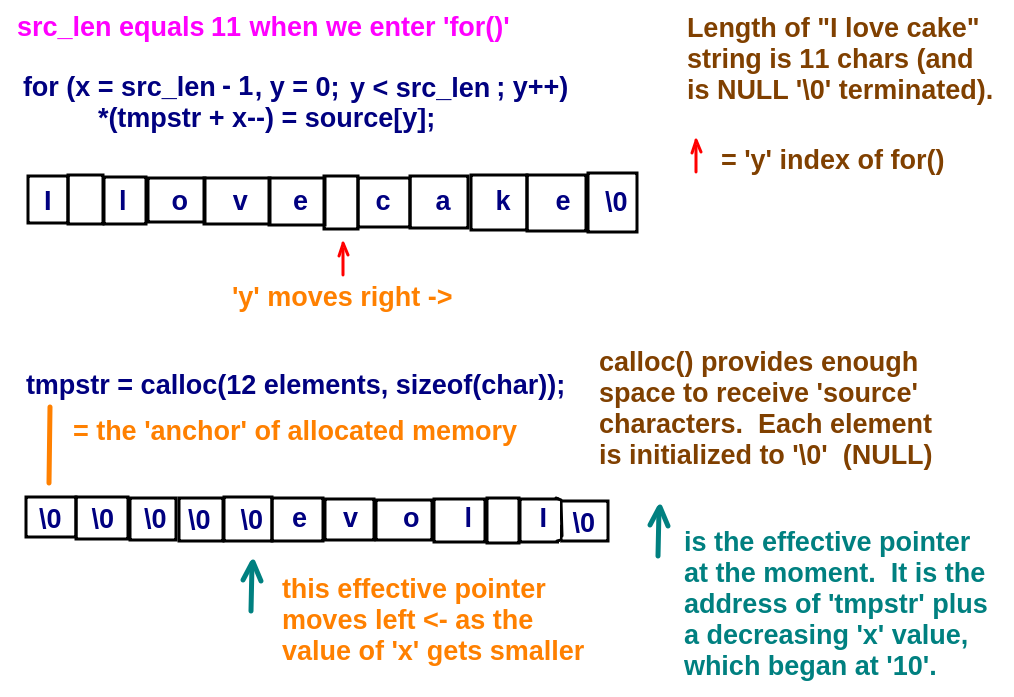There are numerous situations when we need to allocate memory - particularly when the size of said storage is not known at time of coding. As with file I/O (i.e., where 'fopen()' fails to gain access to a file), we need to error-check if a request for memory fails. And it behooves us to assure the requested memory is FREED when no longer needed.

/* pgm22 source */
#include <stdio.h>
#include <stdlib.h>
#include <string.h>
enum usecode {RET_ERR = -1, RET_OK};
int reverse_str(char *); // our reusable function to reverse the chars in a string
int main(void) {
char sentence[80]; // we might use a longer string; 80 is enough for here
// shorter string
strcpy(sentence, "LOOK! A flying PIG!");
// longer string
// strcpy(sentence, "Cats & Dogs NEVER get along together, but Dogs are far better, eh?");
printf("\nVariable 'sentence' before reversing:\n %s\n\n", sentence);
if (reverse_str(&sentence[0]) == RET_ERR)
return(RET_ERR);
printf("After reversing:\n %s\n\n", sentence);
return(RET_OK);
}
/* NOTE: this is NOT the best solution for reversing */
/* the contents of a string. It's just ONE possibility */
int reverse_str(char source[]) {
char *tmpstr;
int src_len;
int x;
int y;
src_len = strlen(source);
tmpstr = calloc(src_len + 1, sizeof(char)); // request memory from the operating system
if (tmpstr == NULL) {
printf("\nMemory allocation error!\n");
return(RET_ERR);
}
for (x = src_len - 1, y = 0; y < src_len; y++) // article has more details on this loop
*(tmpstr + x--) = source[y];
strcpy(source, tmpstr);
free(tmpstr); // good practice to FREE any memory we allocate
return(RET_OK);
}

